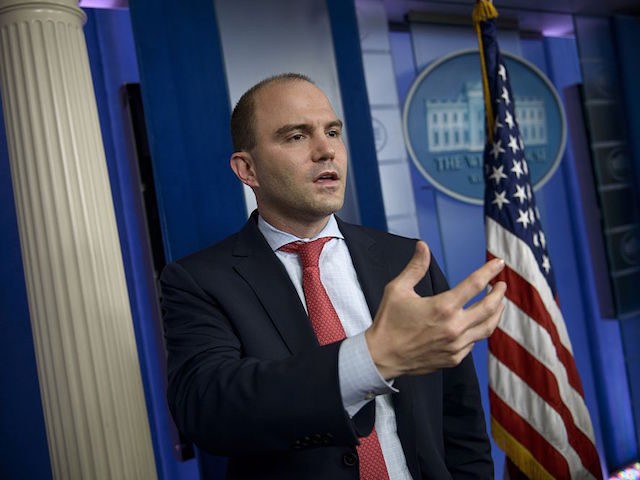Former Obama Deputy National Security Adviser Ben Rhodes is not happy with President Trump’s moves to reverse Obama’s “normalization” of Cuba, and has penned an article in the Atlantic in which he claims it “will fail” and calls it the “last illogical gasp of a strain of American politics with a 50-year track record of failure.”
Rhodes, who famously admitted to creating an “echo chamber” to sell the Iran nuclear deal to journalists who he said “literally know nothing,” was one of the officials behind Obama’s outreach to the communist dictatorship.
Now Rhodes has turned to creating a new narrative, this time on Trump’s reported plans to turn back some of Obama’s “normalization” policy. Trump is set Friday to announce reforms to the policy, including renewed travel restrictions and efforts to prevent the flow of funds to the “repressive members of the Cuban military government.”
But Rhodes is far from happy with the prospect of any turning back on the Obama White House’s outreach to the Castro regime. Rhodes writes for the Atlantic that the changes will “hurt ordinary Cubans, harm the image of the United States, and make it harder for Americans to do business and travel somewhere they want to go,” he writes. He accuses Trump of “turning back the clock”:
While President Obama raised the hopes of Americans and Cubans alike with a forward-looking opening in diplomatic, commercial and people-to-people ties, President Trump is turning back the clock to a tragically failed Cold War mindset by reimposing restrictions on those activities.
Rhodes goes on to accuse Trump of putting U.S.-Cuba relations “back into the prison of the past” before offering an anecdote about how he made a Vatican diplomat cry when he told them the news of the normalization of relations in the fall of 2014.
Rhodes blames the hellish living conditions in Cuba on “the U.S. embargo stacked on top of socialist economics and stifled political dissent.” He warns that Trump’s moves will punish any Cuban efforts to embrace capitalism by restricting U.S. tourism and nixing any possibility that the administration could help change Cuba’s leadership direction:
Cuba is going through its own leadership transition, with Raul Castro set to step aside later this year. What could have been an opportunity for the United States to support an evolution in Cuba’s system through engagement has now become an opportunity for hard-liners to tighten their grip on power.
In one bizarre statement, typical of Obama’s “the world is watching” finger-wagging he often engaged in toward his political opponents, Rhodes also claims that “Cuba will now claim the high ground in a renewed ideological conflict with the U.S., and will find support for that position around the world.”
Arguing that engagement is the better strategy, Rhodes concludes:
Trump’s announcement should be seen for what it is: not as a step forward for democracy, but as the last illogical gasp of a strain of American politics with a 50-year track record of failure; one that wrongly presumes we can control what happens in Cuba.
However, while Obama figures like Rhodes may be unhappy with the move, many Cuban dissidents are delighted by Trump’s reported moves.
Antonio Rodiles, the leader of the dissident group Estado de SATS, said earlier this week that he expected the Trump Cuba policy to “point in a different direction than what has happened, which has been concessions, concessions with nothing in return, and the result has been more repression and more control on behalf of the regime in Havana.”
Dissidents and former political prisoners notably panned the Obama policy, warning that making economic concessions to the Cuban government without conditioning them on human rights reforms would lead to an increase in political repression. 2016 saw the highest number of arbitrary (and often violent) arrests of political dissidents of the decade, according to NGOs that track political repression on the island.
Adam Shaw is a politics reporter for Breitbart News based in New York. Follow Adam on Twitter: @AdamShawNY

COMMENTS
Please let us know if you're having issues with commenting.